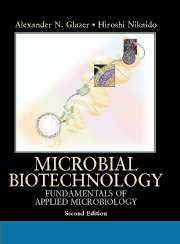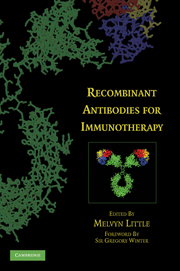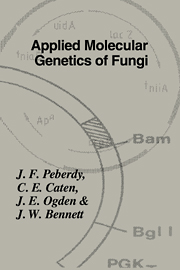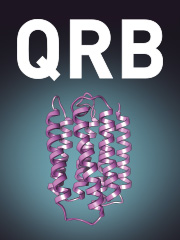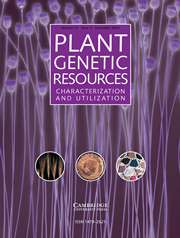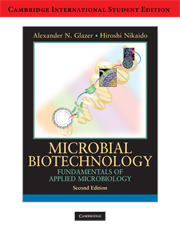Microbial Biotechnology
<p>Knowledge in microbiology is growing exponentially through the
determination of genomic sequences of hundreds of microorganisms and the
invention of new technologies such as genomics, transcriptomics, and
proteomics, to deal with this avalanche of information. </p><p>These genomic data
are now exploited in thousands of applications, ranging from those in
medicine, agriculture, organic chemistry, public health, biomass
conversion, to biomining. Microbial Biotechnology. Fundamentals of Applied
Microbiology focuses on uses of major societal importance, enabling an
in-depth analysis of these critically important applications. Some, such
as wastewater treatment, have changed only modestly over time, others,
such as directed molecular evolution, or ‘green’ chemistry, are as current
as today's headlines. </p><p>This fully revised second edition provides an
exciting interdisciplinary journey through the rapidly changing landscape
of discovery in microbial biotechnology. An ideal text for courses in
applied microbiology and biotechnology courses, this book will also serve
as an invaluable overview of recent advances in this field for
professional life scientists and for the diverse community of other
professionals with interests in biotechnology.</p>
- The book focuses on successful applications of microbial biotechnology in areas of major societal importance
- Detailed case studies are drawn from diverse areas such as medicine, agriculture, synthetic organic chemistry, energy and environment
- The book employs a broad interdisciplinary approach with emphasis on describing new concepts and techniques
Reviews & endorsements
"A wonderful text for modern day study of microbes and their fantastic activities. It brings together so many aspects of microbes including their diversity, metabolism, genetics, etc., etc., etc. I wish I had such a book at my side when I was a student. The text will bring the wonders of microbiology to the student in a way that he/she will never forget."
PROFESSOR ARNOLD L. DEMAIN
Founder of Fermentation Microbiology Dept.,Merck & Co., Inc.;
Formerly Professor of Industrial Microbiology, MIT;
Past President,Society for Industrial Microbiology
"The second edition of Glazer and Nikaido's Microbial Biotechnology
provides an essential intellectual link between the breakthroughs of
the last ten years in our understanding of the fundamental processes
that drive microbial function and the application of this knowledge
to the technological challenges faced by society. The book is unique
in the clarity with which specific industrial problems are delineated
and in the cogent description of how current technology provides
solutions. The range of subjects covered in this volume is
astounding. They extend from microbial metabolites, antibiotics and
polymers to recombinant vaccine production and enzyme and metabolic
engineering. The basic scientific principles involved in associated
areas, from microbial genetics to transgenic plant production and
the world of 'Omics are presented in a straight forward manner so
that a reader with some general biology background can grasp the
the concepts and their application. In addition enough details and
useful references are provided to engage the most sophisticated
reader. Microbial Biotechnology fills the void generated by the
absence of a suitable scientifically sophisticated text for an
advanced undergraduate or graduate course in Biotechnology. It will
also be a required addition to the library of all of those associated
with industrial microbiology and the biotechnology and pharmaceutical
industries including the research workers, patent lawyers, regulatory
agents and even an occasional venture capitalist."
MELVIN I. SIMON
Biaggini Professor of Biology, California Institute of Technology;
Founder of the microbial biotechnology company Diversa
"Microbial Biotechnology comprehensively covers both the basics and
complexities of the microbial world as it applies to biotechnology.
Having the biochemical structures in place along with descriptive
paragraphs of microbial facts is an added value in teaching students the
amazing and wonderful capabilities of these invisible strangers and
friends. From microbial diversity to recombinant and synthetic vaccines
to primary and secondary metabolites to environmental applications,
Microbial Biotechnology embraces the reader with both the primary
foundations of microbiology to the latest advanced microbial methods
being practiced in laboratories around the world. Reading the book
reminded me as to why I became a applied microbiologist in the first place."
JENNIE HUNTER-CEVERA
President University of Maryland Biotechnology Institute;
Past President, Society for Industrial Microbiology
"The application of science to practical problems of humanity has at times been approached with an air of apology. No longer. Biotechnology, especially of the microbiological variety is so closely linked to its scientific roots as to make for a seamless continuum. Nowhere is this more vividly demonstrated than in the second edition of Microbial Biotechnology, written by two leading scientists who have made stellar contributions to microbiology and biochemistry. This book, based on their authoritative insights and experience, unites the “bio” and “technology” in a masterful way. This is what we expected from the update of a classic in its field."
MOSELIO SCHAECHTER
Distinguished Professor, Emeritus,
Tufts University School of Medicine;
Past President, American Society for Microbiology
"Microbial Biotechnology is engrossing to read, and will be appreciated by anyone wishing to better understand the diverse means by which microbes are being exploited to solve biomedical, food, energy, and environmental problems."
K.A. Newman, Choice Magazine
Product details
January 2008Adobe eBook Reader
9780511339660
0 pages
253 × 203 mm
0kg
74 tables
This ISBN is for an eBook version which is distributed on our behalf by a third party.
Table of Contents
- Preamble
- 1. Microbial diversity
- 2. Microbial biotechnology, scope, techniques and examples
- 3. Production of proteins in bacteria and yeast
- 4. The world of 'omics' - genomics, transcriptomics, proteomics and metabolomics
- 5. Recombinant and synthetic vaccines
- 6. Plant-microbe interactions
- 7. Microbial insecticides
- 8. Microbial polysaccharides and polyesters
- 9. Amino acids
- 10. Antibiotics
- 11. Biocatalysis in organic chemistry
- 12. Biomass
- 13. Ethanol
- 14. Environmental applications.

